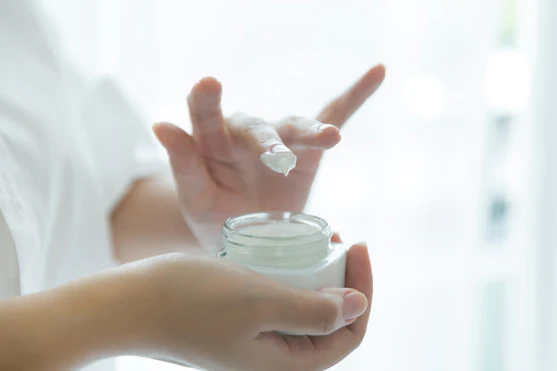When it comes to skincare, we often hear about the importance of cleansing, exfoliating, and protecting our skin from the sun. While these steps are undoubtedly crucial, one element of skincare that sometimes doesn’t receive the attention it deserves is moisturization. The role of moisturizers in skincare is often underestimated, yet it plays a vital part in maintaining healthy, radiant skin.
Understanding Skin Hydration
Before delving into the significance of moisturizers, let’s first understand the concept of skin hydration. Our skin has a natural barrier, often referred to as the lipid barrier, which is composed of oils and fats. This barrier serves as a protective shield, preventing water loss and shielding our skin from external aggressors like pollution and bacteria.
However, this natural barrier can be compromised by various factors such as harsh weather, excessive washing, or age. When this lipid barrier weakens, our skin loses moisture more rapidly, leading to dryness, flakiness, and potentially even more severe skin conditions.
The Role of Moisturizers
Moisturizers are designed to counteract these effects by replenishing the skin’s moisture content and reinforcing the lipid barrier. They come in various forms, including creams, lotions, and serums, each tailored to different skin types and conditions. Here are the essential roles that moisturizers play in skincare:
- Hydration: The primary role of a moisturizer is to hydrate the skin. Moisturizers contain ingredients that attract and lock in moisture, preventing water loss and maintaining the skin’s natural hydration.
- Barrier Repair: A quality moisturizer aids in repairing and strengthening the skin’s natural barrier. This not only keeps moisture in but also shields the skin from environmental pollutants and irritants.
- Soothing and Calming: Moisturizers often contain ingredients with anti-inflammatory and soothing properties. This can help calm redness, irritation, and skin conditions like eczema or rosacea.
- Anti-Aging: Properly hydrated skin tends to show fewer signs of aging. Moisturizers can improve the appearance of fine lines and wrinkles by maintaining the skin’s elasticity and plumpness.
- Even Skin Tone: Some moisturizers contain ingredients that help fade dark spots and pigmentation irregularities, promoting a more even skin tone.
- Acne Management: Surprisingly, using a non-comedogenic moisturizer can help manage acne. By preventing the skin from becoming too dry, moisturizers can reduce the overproduction of sebum that can lead to breakouts.
Choosing the Right Moisturizer
Selecting the right moisturizer for your skin type and concerns is crucial. Here are some tips to keep in mind:
- Skin Type: Consider your skin type when choosing a moisturizer. Oily skin benefits from lightweight, oil-free moisturizers, while dry skin requires richer, hydrating options.
- Ingredients: Look for moisturizers with ingredients like hyaluronic acid for deep hydration, ceramides for barrier repair, and antioxidants for anti-aging benefits.
- SPF: Opt for a moisturizer with SPF to combine hydration and sun protection, especially during the day.
- Avoid Irritants: Check the ingredient list for potential irritants or allergens, especially if you have sensitive skin.
- Consistency: The consistency of the moisturizer matters. A cream is heavier and more emollient, while a lotion is lighter. Serums are ideal for specific concerns and layer well under other products.
Conclusion
In the realm of skincare, the role of moisturizers cannot be overstated. They are fundamental to maintaining skin health, preventing moisture loss, and preserving a youthful, radiant complexion. By selecting the right moisturizer for your skin type and concerns, you can enjoy the many benefits of this often overlooked hero of skincare. So, don’t forget to hydrate your skin, and let your natural beauty shine through.
